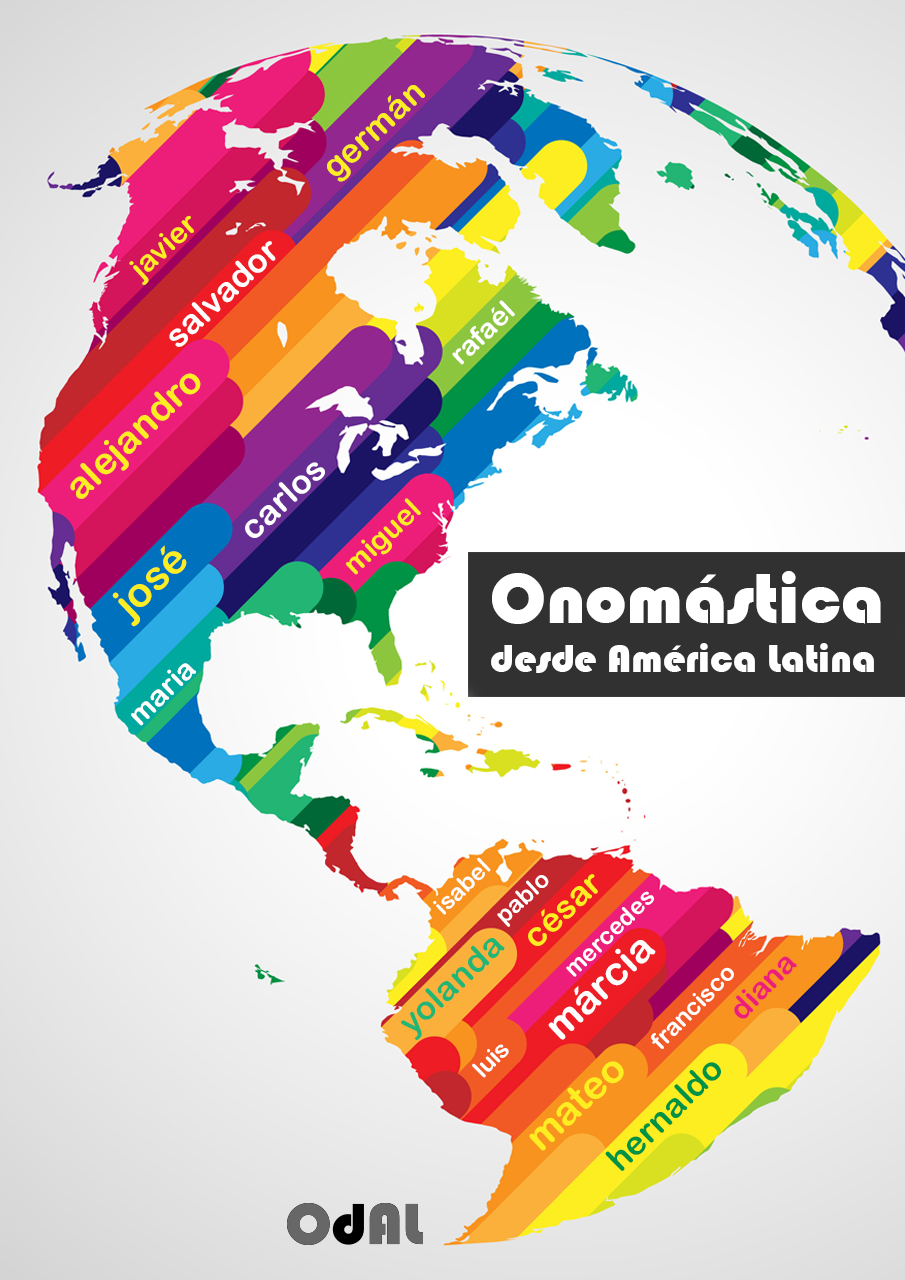Nombres con historia
Una aproximación al cambio de nombre en la comunidad transgénero española
DOI:
https://doi.org/10.48075/odal.v5i1.32326Palavras-chave:
socionomástica, antropónimos, comunidad transgénero, cambio de nombreResumo
El presente trabajo tiene como objetivo ofrecer una aproximación al complejo proceso de cambio de nombre por el que pasan los individuos pertenecientes a la comunidad transgénero y la ejemplificación de este mediante los relatos onomásticos de algunos individuos transgénero españoles. El análisis de estos relatos permite el acercamiento, por un lado, desde la perspectiva de las actitudes lingüísticas, y, por otro, desde el estudio del léxico, que permite corroborar lo narrado con datos cuantificables y objetivos. Apoyándonos en los datos del Instituto Nacional de Estadística (INE), ofrecemos una caracterización de estos nombres en base a su innovación y ruptura con el repertorio antroponímico anterior, además de ratificar el papel del nombre como elemento configurador de la identidad y, por tanto, sujeto a una clara intención de hipercaracterización genérica en este proceso.
Referências
Anzani, A., Rucco, D., Lorusso, M. M., & Prunas, A. (2022). Identity Values of Chosen Names in Transgender and Non-Binary Youth: A Qualitative Investigation. LGBTQ+ Family: An Interdisciplinary Journal. https://doi.org/10.1080/27703371.2022.2149656
Austin, J. L. (1962). How to do Things with Words. Harvard University Press.
Brown, P. y Stephen C. Levinson (1987). Politeness: Some Universals in Language Usage. Cambridge University Press.
Fernández Juncal, C. (2019). “Evolución de los usos antroponímicos en España”. En Moenia, 25, 149-177.
(2021a). Estructura formal del repertorio antroponímico español. En Revista de Filología Española, 101(1), 127-149. https://doi.org/10.3989/rfe.2021.005
(2021b). Permanencia, innovación y obsolescencia en el repertorio antroponímico español. Onomazein, 53, 106-130. https://doi.org/10.7764/onomazein.53.02
(2022). "Recursos y fuentes en los estudios antroponomásticos". Onomástica desde América Latina, 5:4, 90-126.
Jiménez Segura, S. (2020). La construcción de la identidad de género a partir de la selección del nombre de pila. Onomástica Desde América Latina, 1(1), 172–198. https://doi.org/10.48075/odal.v1i1.24165
Lind, M. (2023). How to do gender with names. Journal of Language and Sexuality, 12(1), 1–22. https://doi.org/10.1075/jls.21002.lin
Pilcher, J. (2017). Names and “Doing Gender”: How Forenames and Surnames Contribute to Gender Identities, Difference, and Inequalities. Sex Roles, 77(11–12), 812–822. https://doi.org/10.1007/s11199-017-0805-4
Seide, Márcia Sipavicius. (2021). "Proposta de definição interdisciplinar de nome próprio" en Onomástica desde América Latina, 2(4), 70-94. https://doi.org/10.48075/odal.v0i0.27562
Russell, S. T., Pollitt, A. M., Li, G., & Grossman, A. H. (2018). Chosen Name Use Is Linked to Reduced Depressive Symptoms, Suicidal Ideation, and Suicidal Behavior Among Transgender Youth. Journal of Adolescent Health, 63(4), 503–505. https://doi.org/10.1016/j.jadohealth.2018.02.003
Downloads
Publicado
Como Citar
Edição
Seção
Licença
Copyright (c) 2024 John Vinagre Vázquez

Este trabalho está licenciado sob uma licença Creative Commons Attribution-NonCommercial-ShareAlike 4.0 International License.
Aviso de Direito Autoral Creative Commons
Política para Periódicos de Acesso Livre
Autores que publicam nesta revista concordam com os seguintes termos:
1. Autores mantém os direitos autorais e concedem à revista o direito de primeira publicação, com o trabalho simultaneamente licenciado sob a Licença Creative Commons Attribution que permite o compartilhamento do trabalho com reconhecimento da autoria e publicação inicial nesta revista.
2. Autores têm autorização para assumir contratos adicionais separadamente, para distribuição não-exclusiva da versão do trabalho publicada nesta revista (ex.: publicar em repositório institucional ou como capítulo de livro), com reconhecimento de autoria e publicação inicial nesta revista.
3. Autores têm permissão e são estimulados a publicar e distribuir seu trabalho online (ex.: em repositórios institucionais ou na sua página pessoal) a qualquer ponto antes ou durante o processo editorial, já que isso pode gerar alterações produtivas, bem como aumentar o impacto e a citação do trabalho publicado (Veja O Efeito do Acesso Livre).
Licença Creative Commons
Esta obra está licenciada com uma Licença Creative Commons Atribuição-NãoComercial-CompartilhaIgual 4.0 Internacional, o que permite compartilhar, copiar, distribuir, exibir, reproduzir, a totalidade ou partes desde que não tenha objetivo comercial e sejam citados os autores e a fonte.

